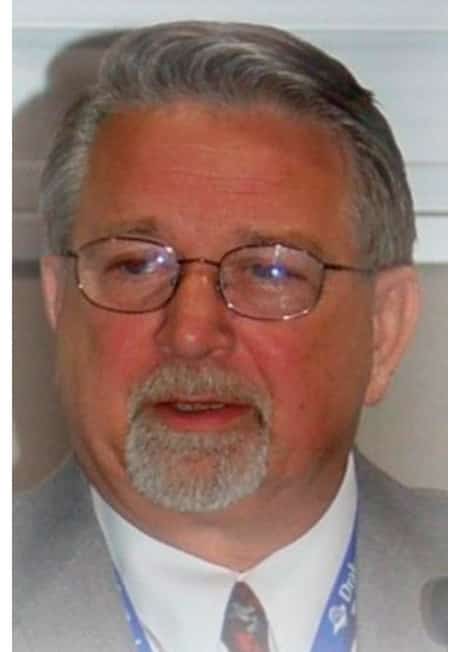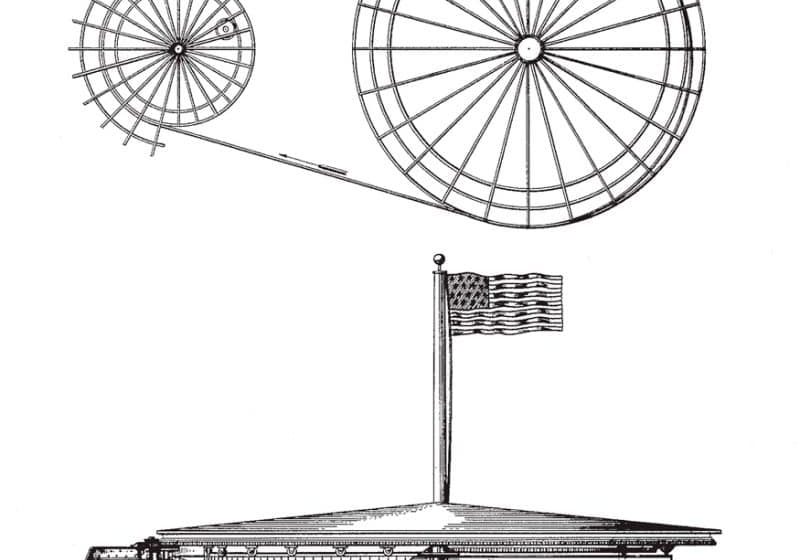Consultant looks back on his long industry career with fondness.
James D. “Jim” Lawrence is principal, senior elevator consultant for James Lawrence & Associates LLC. A Norfolk, Virginia, native, he lives and works in nearby Richmond, Virginia. Later graduating from Virginia Tech in Blacksburg, Virginia, with a Mechanical Engineering and Metallurgical Engineering degree and a BS in Business Administration, Lawrence began in the elevator industry in July 1963 as a senior at Virginia Tech, when Otis hired and enrolled him in its Mid-Atlantic Region Student Training Program, based in Philadelphia. He knew this was the right profession for him after speaking with Otis regional managers, who felt satisfied at the company. After Lawrence joined Otis, he found he liked the type of work, type of people he would be working with and what he called the company’s “superior product recognition in the industry.”
After working for Otis as a management trainee and estimator for three years, Lawrence was sent to Washington, D.C., as a service sales representative, where he remained until 1968. He was then made branch manager at Otis’ Reading, Pennsylvania, office until 1972, when he was made a district service manager. He held this post for six years in Richmond, then Washington, D.C., before returning to Richmond as manager of district operations. Lawrence remained with Otis until 1987, when he founded James Lawrence & Associates.
Lawrence spoke extensively on the many mentors he had over the years, beginning with his father. “Working at his car dealership for six months was better than [the education one could get from] a Harvard PhD,” he noted. Next, Virginia Tech Labor Law College Professor Duke Beard taught him a lesson Lawrence said served him well in his days of dealing with union friends:
“Management and labor reflect each other, like looking in a mirror. If you have tough management, you are going to have tough labor looking back at you. If there is cooperative management, then cooperative labor will be your reflection.”
Lawrence said George Strakosch, a mentor to many in the industry who passed away last year (ELEVATOR WORLD, August 2013), taught him the basic principles of elevatoring when they performed traffic surveys together in New York City. He learned about Strakosch’s People Second Meter, a forerunner of destination-dispatch technology that measured the time a passenger is trapped in the system before getting to his or her destination.
Others influential in Lawrence’s life include:
- Otis Philadelphia District Service Manager and Vice President (VP), Northeast Region Jim Siegel, who hired Lawrence and oversaw his training and early years with the company.
- Otis Mid-Atlantic Region Sales Engineer Charlie Knopf and District Manager, Washington, D.C. and Senior VP for North American Operations in Farmington, Connecticut, Mike Dizio, who encouraged and stood behind Lawrence when he had conflicts with the company.
- Otis District Service Manager, Washington, D.C., Bill Huntsman, who taught Lawrence the basics of customer satisfaction in his first sales position.
- Otis Maintenance Supervisor, Reading, Bill Shaw, who taught Lawrence good hiring practices in his first management position.
- Otis Director of Codes & Safety, North American Operations George Gibson advised Lawrence to join NAESA International upon leaving Otis. Both became trusted advisors and fellow board members of the organization.
- Goodwill Baptist Church (Richmond) Pastor Robert Hess, who taught Lawrence “If you take care of God’s business, He will take care of your business,” and the church’s Chairman of Deacons Conway Bradshaw.
- Elevator World, Inc. founder William C. Sturgeon, who invited Lawrence to present the newly formed National Association of Vertical Transportation Professionals (NAVTP, now International Association of Elevator Consultants [IAEC]) to the Lerch Bates forum in 1991. “Sturgeon sent me his personal check to pay for my plane fare,” recalls Lawrence.
- Many others, including Gary Falton, Paul Newton, Moe Utley and Carl Kropic at Otis; Institute in Basic Life Principles founder Bill Gothard; NAESA Executive Director Bud Rommel; Judge Bev Snuckols; and Lerch Bates Inc. cofounder Quentin Bates
Lawrence says the biggest challenge he faces in his current position is not falling victim to the “tyranny of the urgent.” He combats this by using schedules and the daily assignation of priorities. As a consultant, he strives “to provide designs that meet the owner’s true elevator needs, rather than only providing solutions from a manufacturer’s product manual,” he explained. “Having been a contractor [who] moved to the design professional role yields a specification for a finished product that is a win/win for both the owner and contractor.”
Lawrence particularly enjoys working with clients over a long period of time and seeing the new technology approaches from various industry-leading manufacturers. “Following the installation from concept to completion is a great reward,” he explained. “Turning a mediocre elevator system into jewel that shines, increases performance and reliability and adds a signature identification to the building using appropriate cabs, fixtures and entrances” such as what his firm did at the Virginia State Capitol Governor’s Mansion, Patrick Henry Building, Supreme Court and General Assembly, and the Virginia Museum of Fine Arts are jobs of which he is exceptionally proud. “Each building has a story about what the improved elevators did for the users and the overall improvement made in the building’s operation,” Lawrence added.
Lawrence’s long-term goals for his company and career are “to finish well in all things we do” and “leave a legacy for my son, who is following in my footsteps. He is already doing things that enhance our quality and production.” Speaking of those entering the elevator industry today, he had the following advice: “This business is one of infinite details. Do a thorough job on the up-front work (initial survey), and the foundation will be laid for a noteworthy project.”
Lawrence particularly admires two industry leaders: Dotty Stanlaske, NAESA executive director, and Morris DeSimone, quality-control manager, Quality Elevator. He said Stanlaske “took over the helm after the untimely death of her predecessor [and] steadfastly grew the organization from a few hundred to several thousand.” In addition to being a longtime mentor to Lawrence, DeSimone trained him how to conduct regional and national meetings when they served as NAESA officers. “He set an example of putting others first and doing for others before yourself as a path to true leadership,” Lawrence praised.
Looking to the future, Lawrence said:
“A major change in the way we do maintenance is in the wings. New types of components, [such as] non-maintainable sealed bearings in motors and machines, provide [fewer] tasks for a mechanic to do. This would include [the] elimination of motor-generator sets, old-fashioned selectors, light rays, safety shoes, relay controllers, etc. If these elements are present, more frequent service visits are required to keep things under control. Years ago, we over maintained some types of elevator equipment, but there is still a base of old stuff that needs the more frequent attention.
“Improved monitoring techniques help pinpoint trouble areas, and the right data input can theoretically dispatch a mechanic to a job before trouble becomes evident. The problem is, the mechanics are being assigned too many old elevators mixed in with the new-technology units. Overseeing too large a number of the wrong mix cuts into the preventative-maintenance task times needed to reduce the call-backs.
“A mechanic on a ‘high-tech’ route can handle a larger route. However, even [these] routes have telephones and emergency lights that need batteries replaced, often on a yearly basis. The companies often take things requiring batteries out of the maintenance contract. The inspector finds the phones and emergency car lights not working, and this results in a re-inspection for him and a call-back for the elevator mechanic. If the mechanic fixed it on the routine maintenance exam or while the annual inspection [went] on, these problems would go away.”
Lawrence’s own company has weathered the recession through diversity. He explained:
“We do both consulting and inspection work, with consulting being the major thrust for our business. The inspection work can carry you through a dry season of consulting work, but the condition reports and studies can also be a good source of revenue in lean times and give you the wherewithal to move ahead quickly when the economy picks up.”
Lawrence is an American Society of Mechanical Engineers professional member, Construction Specifications Institute professional member and certified construction contract administrator, IAEC professional member and VP, and NAESA private-inspector supervisor and former secretary and regional vice chair. He finds the National Association of Elevator Contractors’ annual exhibition and IAEC Annual Forum beneficial in helping him stay up to date on industry technology and happenings.
Lawrence works with his wife, Faith, his consultancy’s office manager, and youngest son, Matthew, field services manager and 2004 Bud Rommel Scholarship winner, who specializes in AutoCAD and performs inspections. His oldest son, Rhett, has a recording production studio in Los Angeles, while middle son, Christopher, is a documentary producer, restaurant designer, prop master and set designer in Los Angeles. Lawrence’s daughter, Anne, is a homemaker in Simi Valley, California, and he has four grandchildren: Ray, Max, Ben and Sophia.
Lawrence collects Lionel trains, plays the accordion and enjoys traveling, particularly to Outer Banks, North Carolina. He volunteers as treasurer of his local church and with the Gideons, and is an Awana children’s ministries commander. Though he plans to turn over the reins of his company to his son in the next few years, Lawrence loves what he does and plans to be active in the business as long as he is blessed with good health.
Get more of Elevator World. Sign up for our free e-newsletter.









